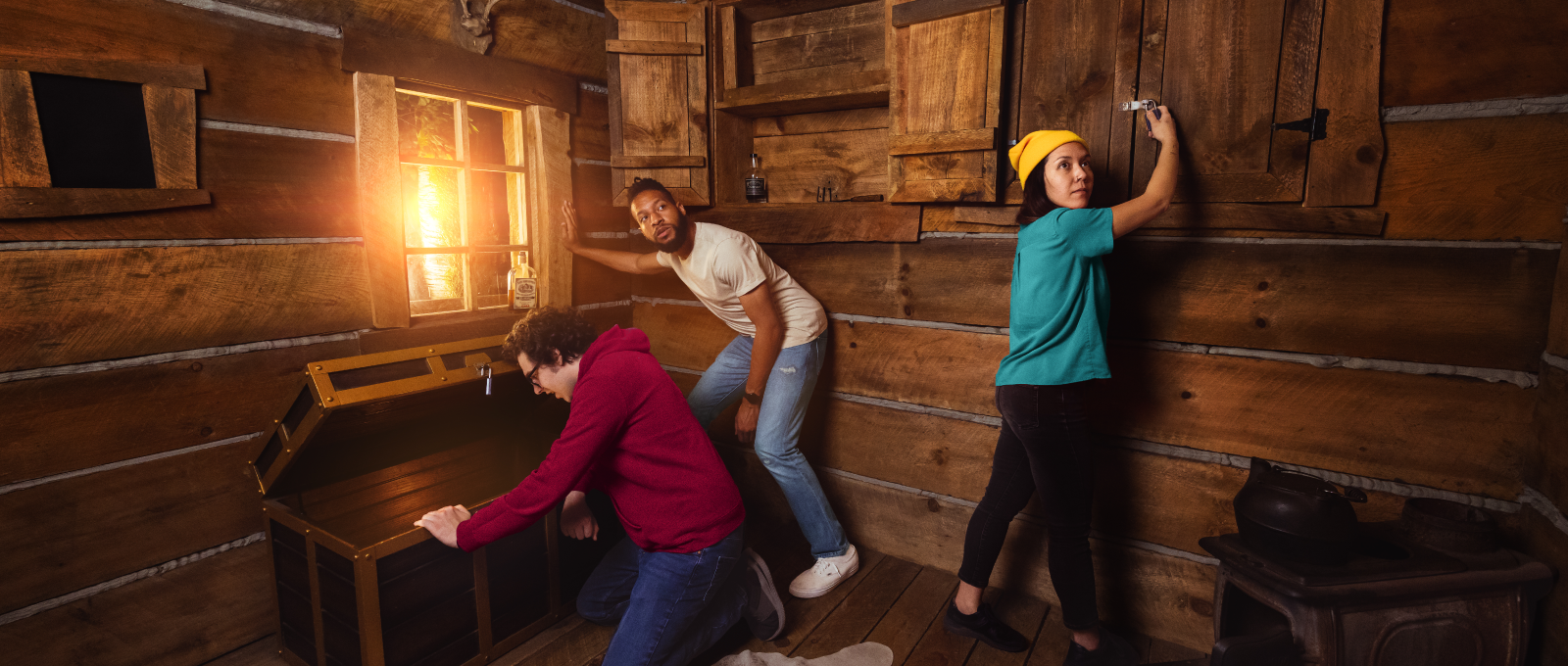Team Activities at Minneapolis Escape Room-- Perfect for Pals and Family
Team Activities at Minneapolis Escape Room-- Perfect for Pals and Family
Blog Article
Group Approaches: Exactly How to Work together Effectively in an Escape Area
Browsing the complexities of a retreat area necessitates even more than simple excitement; it calls for a well-coordinated approach based in clear interaction, strategic function assignments, and experienced time administration. Teams must actively pay attention to each participant's understandings, assign functions that line up with specific toughness, and preserve regular check-ins to make certain emphasis and stop redundancy. By fostering a setting that values communication and versatility, teams can considerably enhance their performance and success rates. The nuances of these strategies can change the experience, yet just how exactly can they be applied to make the most of the potential for success?
Establish Clear Communication

To promote clear communication, it is crucial to mark a main factor of contact for information circulation. Quick, concentrated updates from each group participant can keep the group notified without frustrating them with details.

Appoint Roles Tactically
While clear interaction sets the foundation for effective team effort, appointing duties tactically makes certain that each staff member's strengths are used effectively. In an escape area situation, the time-sensitive and intricate nature of challenges requires a well-organized technique to task delegation. By determining and leveraging private proficiencies, teams can maximize their analytic capabilities and improve total efficiency.
First, analyze the one-of-a-kind abilities and characteristics of each individual. Someone with a keen eye for information may stand out in locating covert items, while a sensible thinker could be better fit to fixing puzzles. It's equally vital to have a leader who can look after progress, manage the timeline, and make crucial phone calls when necessary. This function typically calls for solid organizational and social abilities.
Second, ensure that functions are flexible and adaptable. As brand-new challenges emerge, the team should have the ability to pivot, reallocating jobs as needed. This adaptability assists keep momentum and stops traffic jams that could occur as a result of inflexible role tasks.
Inevitably, a critical approach to function job not just optimizes the strengths of each employee yet also fosters a click here to read natural atmosphere, driving the group towards a successful escape.
Use Diverse Skills
Acknowledging and taking advantage of the diverse abilities within your group can dramatically elevate your efficiency in an escape space. Each employee brings one-of-a-kind toughness to the table, and effectively leveraging these capabilities can accelerate analytical and boost total efficiency. A team participant with strong logical skills could stand out at figuring out intricate codes or patterns, while another with keen empirical abilities might swiftly find hidden hints that others might ignore.
Urge team members to voice their understandings and ideas promptly, guaranteeing that all potential remedies are thought about. In addition, assigning jobs that straighten with each member's staminas can prevent traffic jams and guarantee that progression is continuous.
Furthermore, variety in skills usually translates to diversity in believing styles, which is important in a getaway room setting. While some obstacles might call for sensible reasoning and precision, others could profit from creative and side thinking. By recognizing and my sources leveraging this variety, teams can deal with a broader series of obstacles better, thereby increasing their opportunities of an effective retreat.
Manage Time Properly

Determine noticeable problems and separate jobs based on group members' strengths, ensuring that no one is still. This method can help maintain the group focused and stop time from slipping away undetected.
In addition, prevent tunnel vision. If a challenge is taking as well long, rotate group members or carry on to another difficulty, returning later with fresh viewpoints. Interaction is vital-- maintain everyone upgraded on resolved problems and continuing to be jobs to avoid redundant efforts.
Lastly, utilize any hints view publisher site or clues moderately yet purposefully - best escape room. Understanding when to request for assistance can save useful time. By sticking to these time administration concepts, groups can significantly enhance their possibilities of an effective and pleasurable getaway space experience
Debrief and Mirror
Reflection is an important facet of team advancement and renovation in the context of escape rooms. Once the challenge is completed, whether effectively or not, it is critical for the group to involve in an organized debriefing session. This process enables staff member to examine their performance, recognize toughness, and identify locations for renovation.
Begin the debrief by discussing what worked out. Highlight particular instances of efficient interaction, problem-solving, and cooperation. Recognizing these positive behaviors enhances them and motivates their repeating in future difficulties.
Talk about moments of confusion, miscommunication, or inefficient techniques. Motivate an open and positive discussion where group members can share their perspectives without anxiety of criticism.
Verdict
In verdict, effective cooperation in an escape area is based upon clear communication, strategic role assignments, the effective use of varied skills, and efficient time monitoring. Regular check-ins and organized debriefings are important for preserving focus and cultivating continuous renovation. By creating a cohesive and flexible team atmosphere, the probability of effectively fixing problems and achieving the objective of leaving the room is dramatically enhanced. This approach not just makes sure success however likewise promotes cumulative growth and understanding.
Report this page